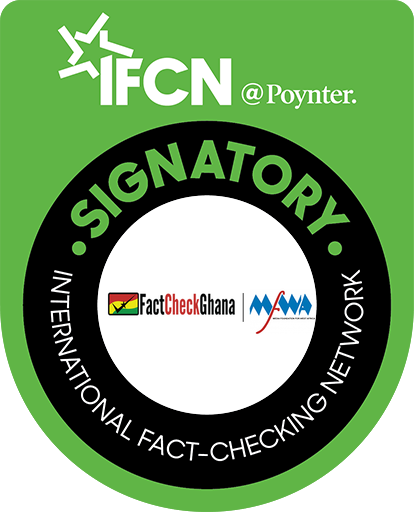Who we are
Fact-Check Ghana is a fact-checking project of the Media Foundation for West Africa (MFWA). The MFWA is West Africa’s biggest and most influential media development and freedom of expression advocacy organisation with headquarters in Accra Ghana and national partner organisations in all 16 countries of West Africa. The project has a dedicated team of experienced journalists and researchers who are supported by programme and administrative staff of the MFWA.
Why Fact-check Ghana?
Ghana has over the years witnessed a significant increase in access to the internet and ownership of smart phones. The country is also home to a diverse, pluralistic media scene and a vibrant, competitive multi-party democratic political environment. This myriad of factors among others, has led to the proliferation of fake news, misinformation and propaganda especially during electioneering campaigns, political debates, public health and other emergencies, and other matters of significant national and/or international public interest. During electioneering campaigns for example, political parties and candidates tend to wittingly or unwittingly peddle falsehood, misleading statements and propaganda in their bid to earn votes. Such claims often gain public traction in both online and legacy media through republications. Over the years, such claims by politicians have not been subjected to any form of routine fact-checking, a situation that has allowed political parties and candidates to often pay little attention to the veracity of the claims and messages they make. The proliferation of fake news, misinformation and propaganda in public discourse if not countered, have a great potential of influencing people to make wrong choices and sometimes, dangerous and harmful decisions. The Fact-Check Ghana project, therefore, seeks to enhance fact-based public discourse, debates and decision making in Ghana’s democratic governance and development processes. This is done by fact-checking claims, statements, promises and messages that are of public interest, and widely publicising findings to help the public make informed opinions, decisions and choices.
What is the Approach
***Is the claim, issue or content of significant public interest and likely to be shared, republished, repeated by many?
***Who made the claim? Is that individual a public figure of high standing whose statements or claims are of public interest and could reach many people?


